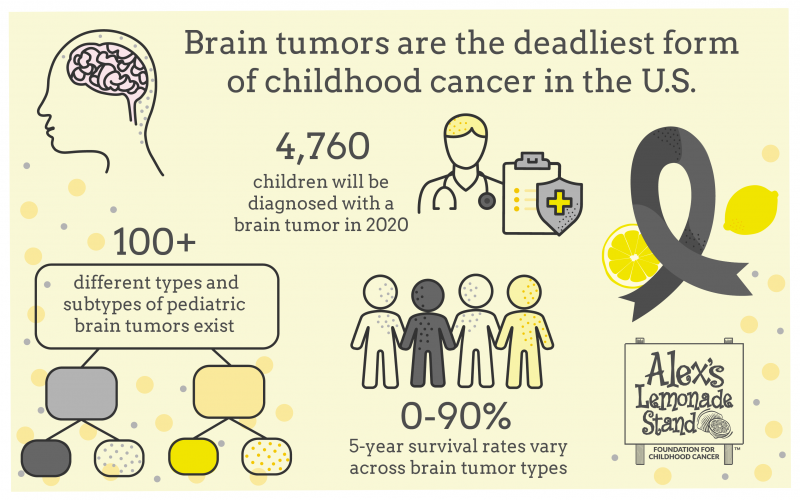Pediatric brain cancer predictions are transforming the landscape of childhood oncology, particularly in the context of glioma treatment. With the integration of advanced artificial intelligence (AI) techniques, researchers have developed predictive models that significantly outperform traditional methods. A recent Harvard study illustrates how an AI tool trained on extensive data from magnetic resonance imaging (MRI) can accurately forecast recurrence risk for young patients afflicted with brain tumors. The promise of this innovation lies not only in improving cancer risk assessment but also in alleviating the burden of frequent imaging required for monitoring potential relapses. Ultimately, such advancements aim to enhance the quality of care for children facing these challenging diagnoses, providing hope for a brighter future.
The emergence of cutting-edge methodologies in the realm of pediatric oncological forecasts is paving the way for enhanced prognosis in treating brain tumors in children. By leveraging intelligent algorithms and comprehensive imaging data, researchers are honing in on predicting malignancy recurrences more effectively than ever before. The utilization of temporal learning in analyzing serial MRI scans represents a significant leap in cancer risk evaluation, allowing for nuanced assessments of tumor behavior over time. This innovative approach not only aids in identifying patients at elevated risk for glioma recurrence but also enhances the overall management of their treatment journey. As this field evolves, the commitment to refining detection techniques remains paramount, ensuring that pediatric patients receive the most accurate and tailored healthcare possible.
Innovations in Pediatric Brain Cancer Prediction
The emergence of artificial intelligence (AI) in cancer detection has revolutionized the way pediatric brain cancers, particularly gliomas, are managed. With innovative algorithms capable of analyzing the intricacies of brain MRI scans, researchers can now better predict outcomes, including the likelihood of tumor recurrence. A recent Harvard study highlighted an AI tool that significantly improves upon traditional methods, demonstrating an accuracy rate of 75-89% in predicting recurrence risk, a substantial increase from the mere 50% accuracy seen with previous techniques.
This AI tool employs a groundbreaking approach known as temporal learning, a method previously unexplored in medical imaging AI research. By synthesizing data from multiple brain scans taken over time, this technique allows for a dynamic assessment of tumor behavior and growth patterns. As a result, healthcare providers can offer more personalized and informed care plans for young patients, potentially reducing the anxiety associated with frequent scanning and increasing the effectiveness of treatment strategies.
Frequently Asked Questions
How does AI improve pediatric brain cancer predictions for glioma recurrence?
AI significantly enhances pediatric brain cancer predictions by analyzing multiple brain scans over time, allowing for a more accurate assessment of the risk of glioma recurrence. Traditional methods often rely on single scans, which may underperform, yielding accuracy rates around 50%. In contrast, AI techniques, particularly those utilizing temporal learning, can achieve prediction accuracies of 75-89% by capturing subtle changes across several imaging sessions.
What role does magnetic resonance imaging play in pediatric brain cancer predictions?
Magnetic resonance imaging (MRI) is vital for monitoring pediatric brain cancer, especially for gliomas, as it allows for ongoing assessment of tumor status post-surgery. In recent research, AI tools have leveraged MRI data to enhance predictions of cancer recurrence by analyzing patterns over time, making it a key component in improving pediatric brain cancer predictions.
What is temporal learning and how does it impact cancer risk assessment in pediatric brain tumors?
Temporal learning is an innovative technique used in AI research that synthesizes data from multiple brain scans taken over time. This approach is particularly impactful for cancer risk assessment in pediatric brain tumors like gliomas, as it enables the model to detect subtle changes that occur after surgery and to correlate these changes with potential recurrence, thus refining predictions beyond traditional methods.
Why is early prediction of pediatric glioma recurrence important?
Early prediction of pediatric glioma recurrence is critical because it can significantly impact treatment decisions and improve patient outcomes. By accurately identifying high-risk patients, healthcare providers can avoid the stress and burden of frequent imaging procedures for lower-risk patients while ensuring timely interventions for those at greater risk, ultimately enhancing the overall care for children with brain cancer.
Can AI’s predictive capabilities for pediatric brain cancer be applied to other types of cancers?
Yes, AI’s predictive capabilities exhibited in pediatric brain cancer can potentially be adapted for other cancer types. The methodology of analyzing serial images using temporal learning can be beneficial across various medical fields where continuous monitoring and imaging are required, aiming to enhance prediction accuracy and patient management in diverse cancer scenarios.
| Key Point | Details |
|---|---|
| AI Tool Development | The AI tool predicts relapse risk in pediatric cancer patients more accurately than traditional methods. |
| Research Study Overview | The study was conducted by researchers from Mass General Brigham, Boston Children’s Hospital, and Dana-Farber/Boston Children’s Cancer and Blood Disorders Center. |
| Temporal Learning Technique | This technique allows the AI to analyze multiple brain scans over time, enhancing prediction accuracy. |
| Accurate Predictions | The AI predicts glioma recurrence with 75-89% accuracy, compared to 50% with traditional single scan methods. |
| Future Potential | Researchers aim to validate AI predictions in clinical trials to improve care for pediatric patients. |
Summary
Pediatric brain cancer predictions are being revolutionized by advancements in AI technology. In a recent study, an innovative AI tool demonstrated a superior ability to forecast relapse risks in children with brain tumors, specifically gliomas, compared to conventional methods. This progress emphasizes the potential for AI to enhance early detection and improve treatment strategies, ultimately leading to better patient outcomes and reduced stress for families. As this technology advances, it holds promise for transforming the management of pediatric brain cancer.
